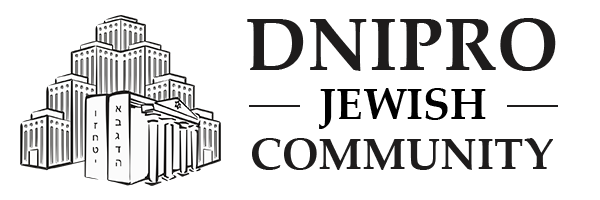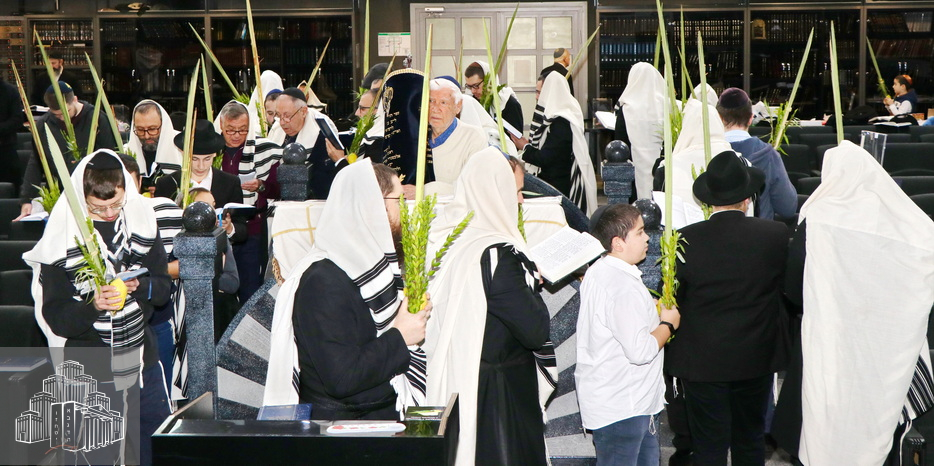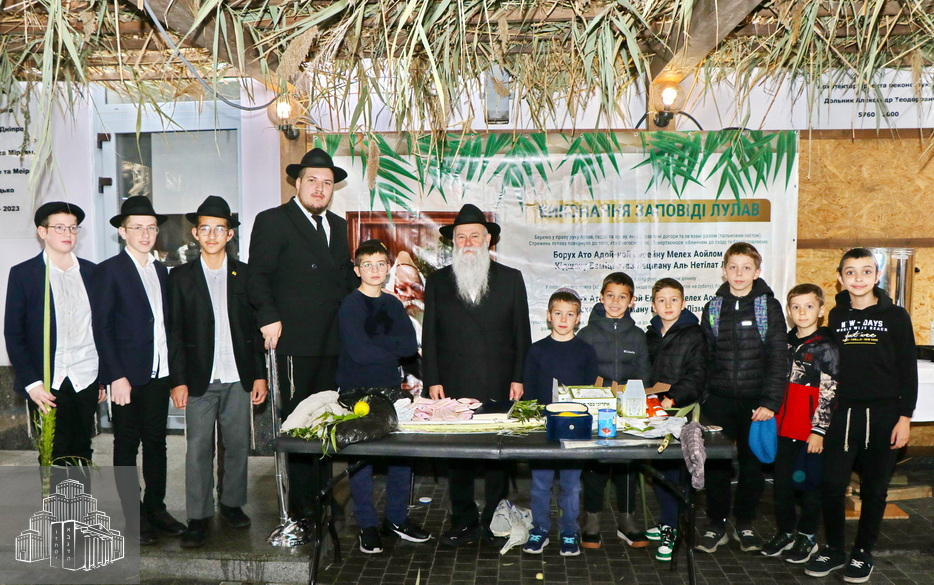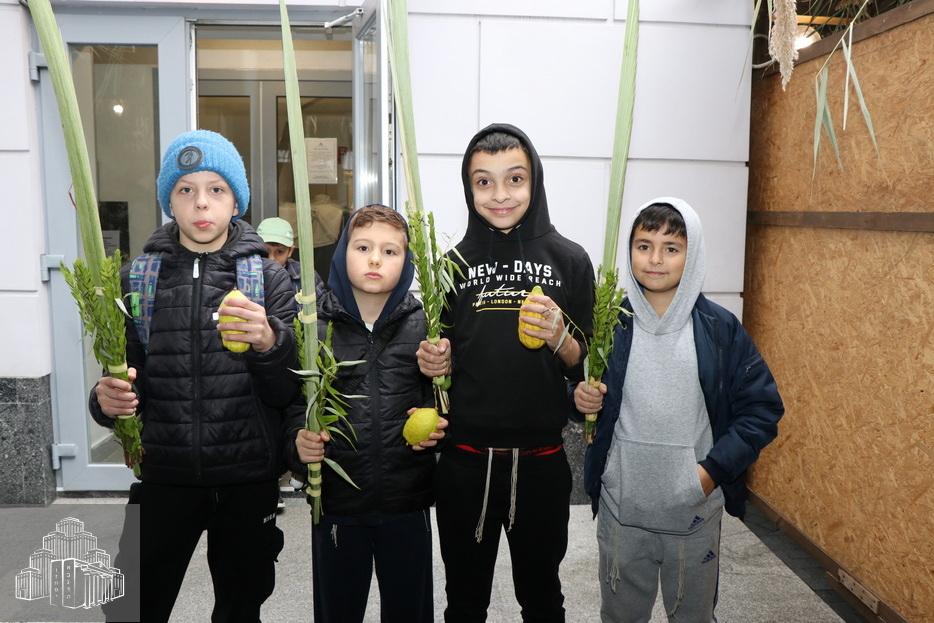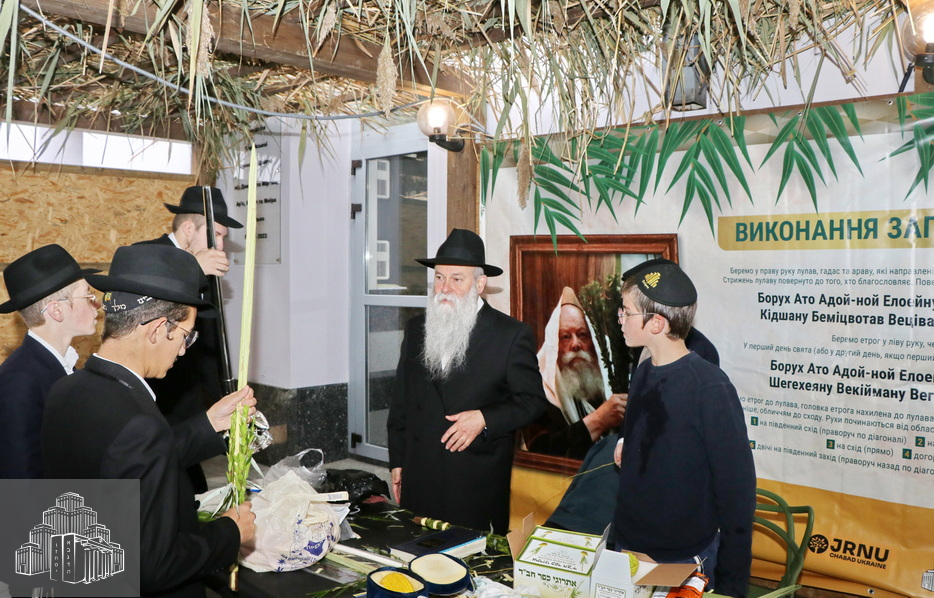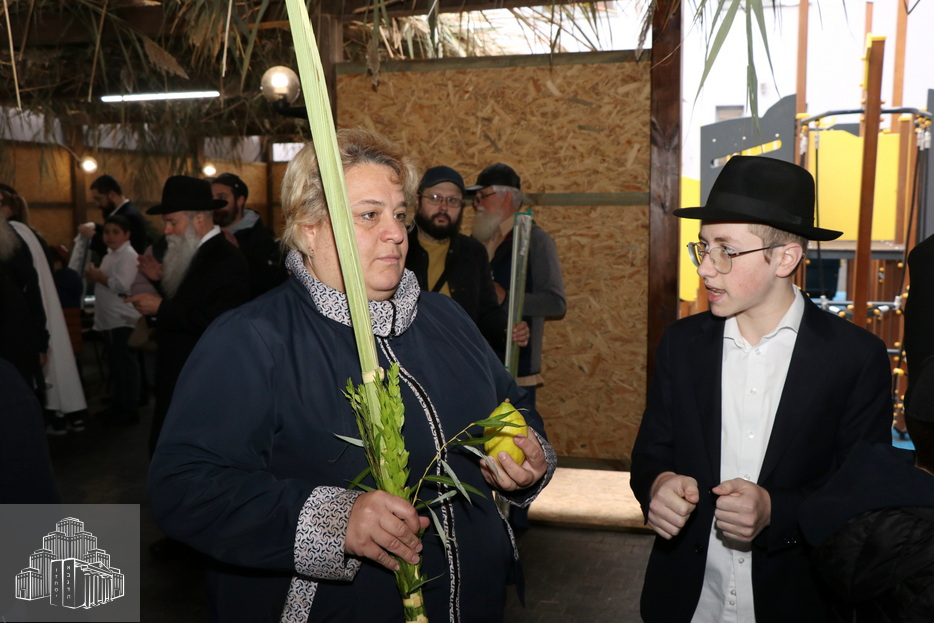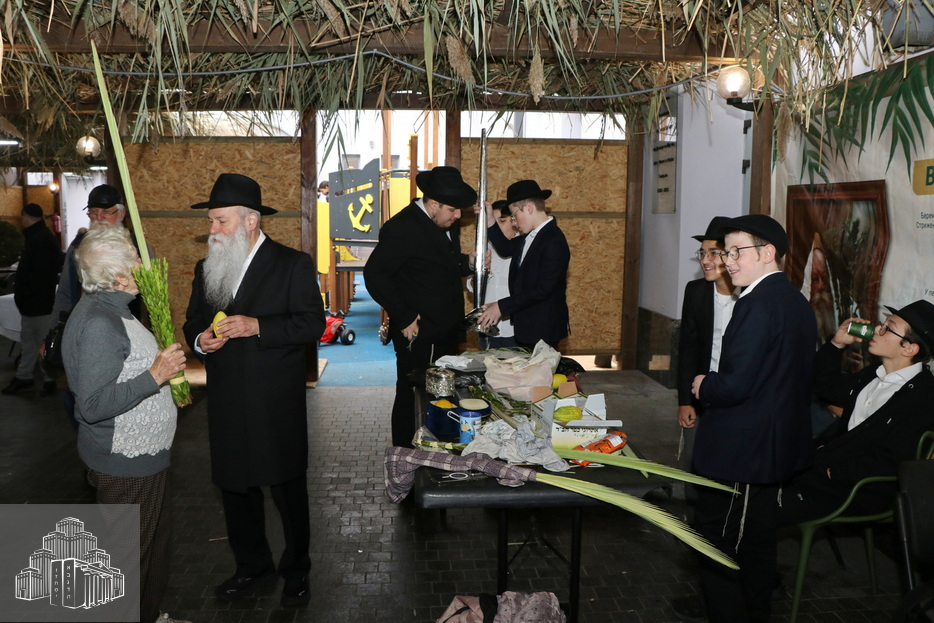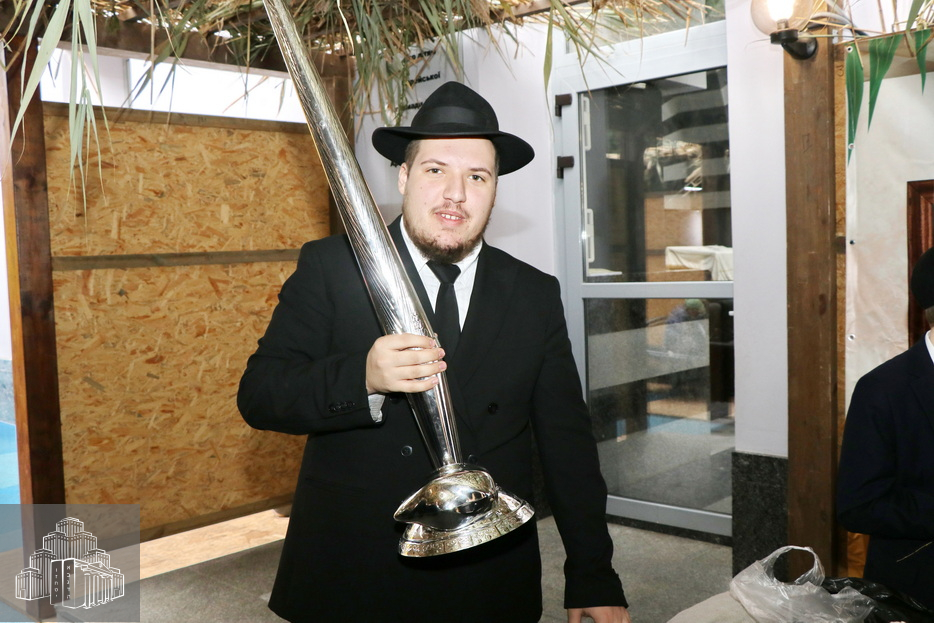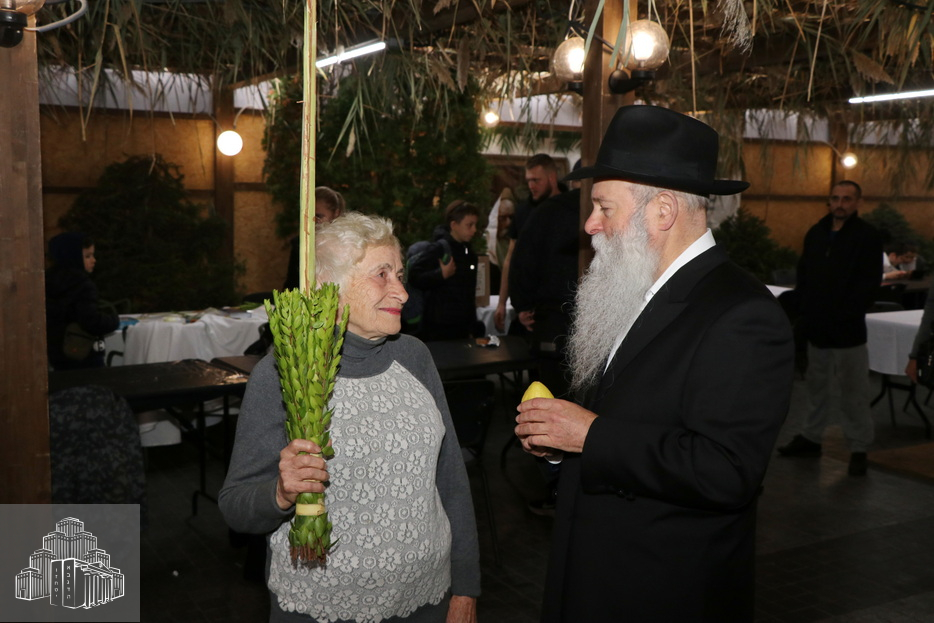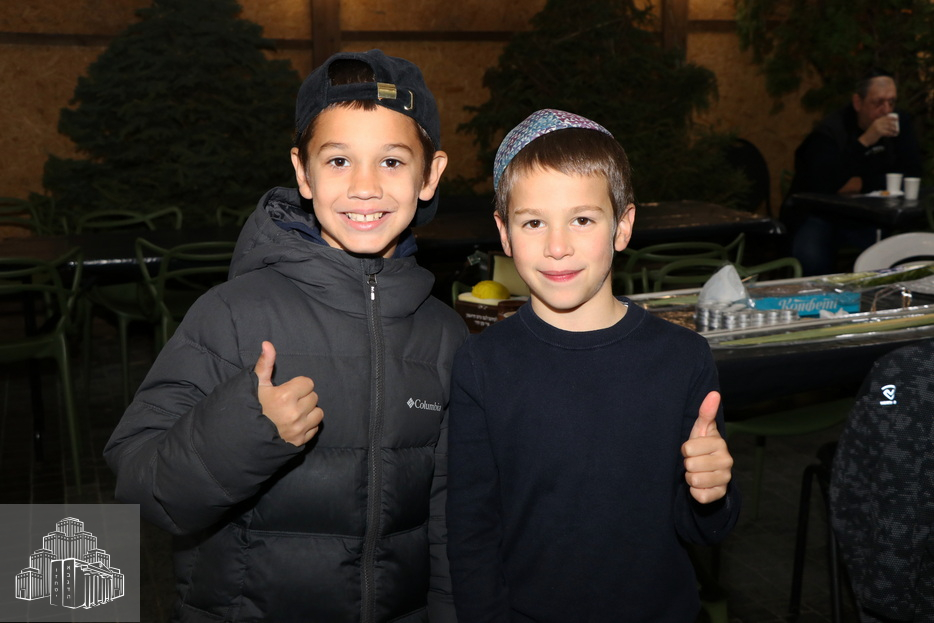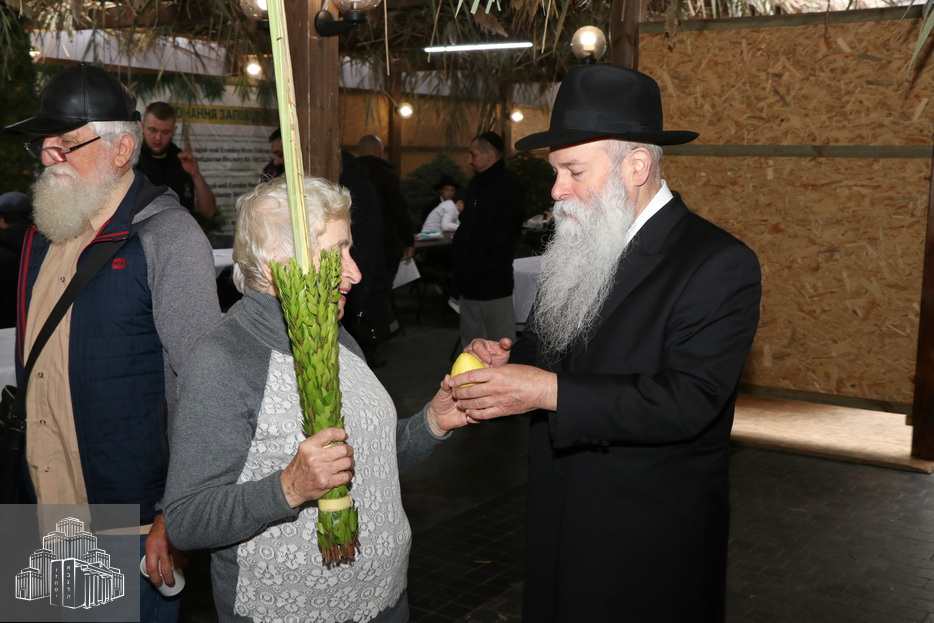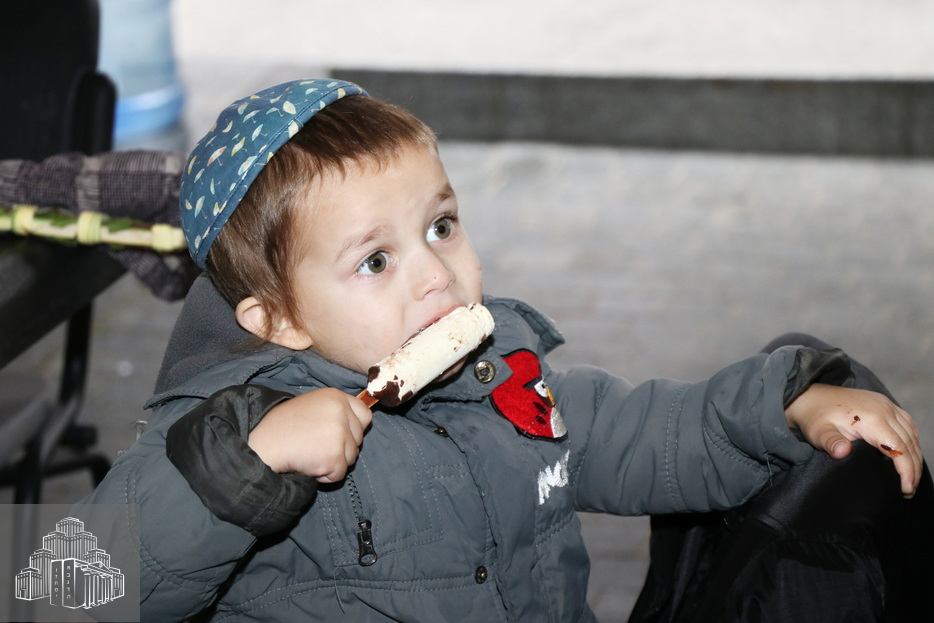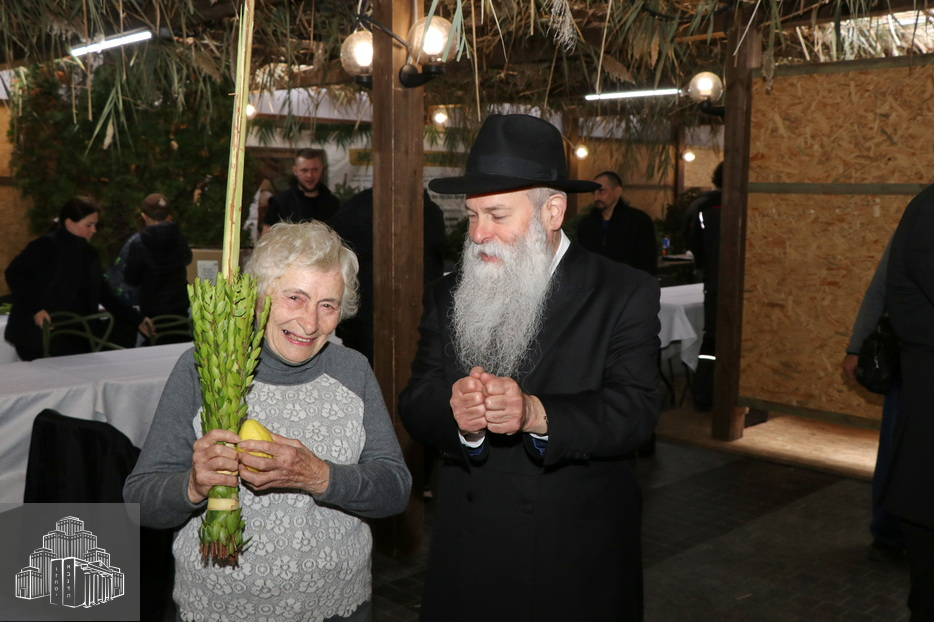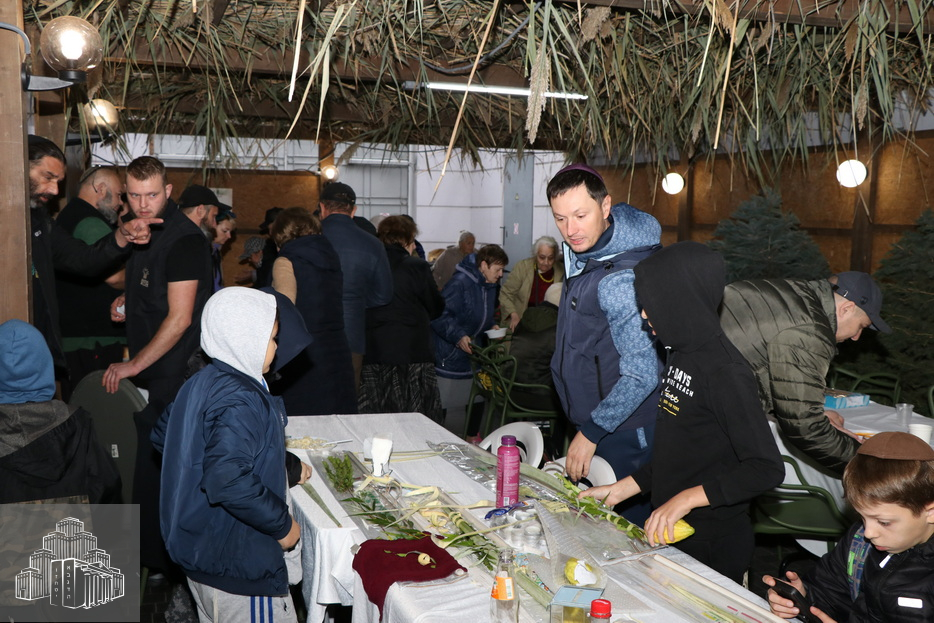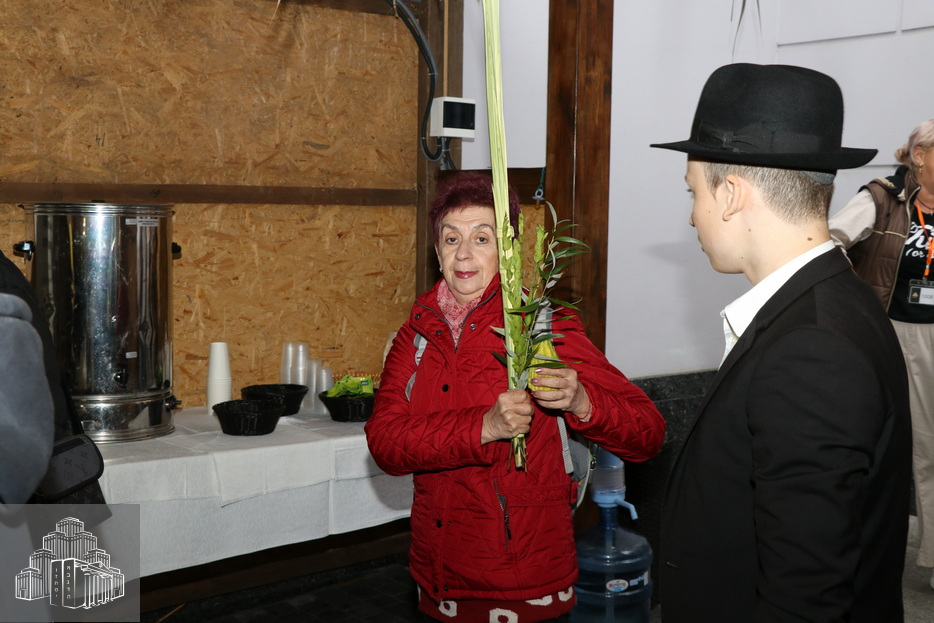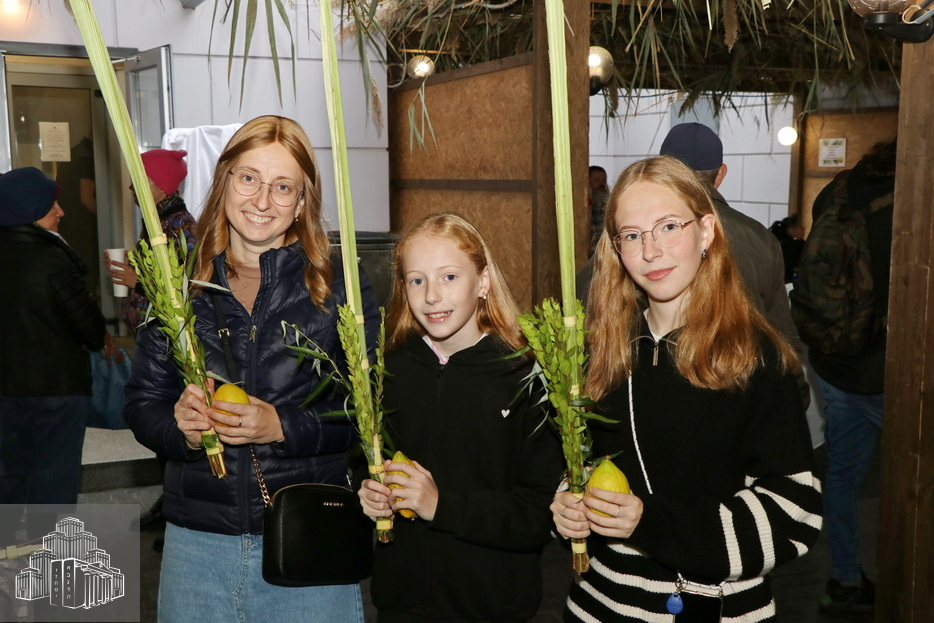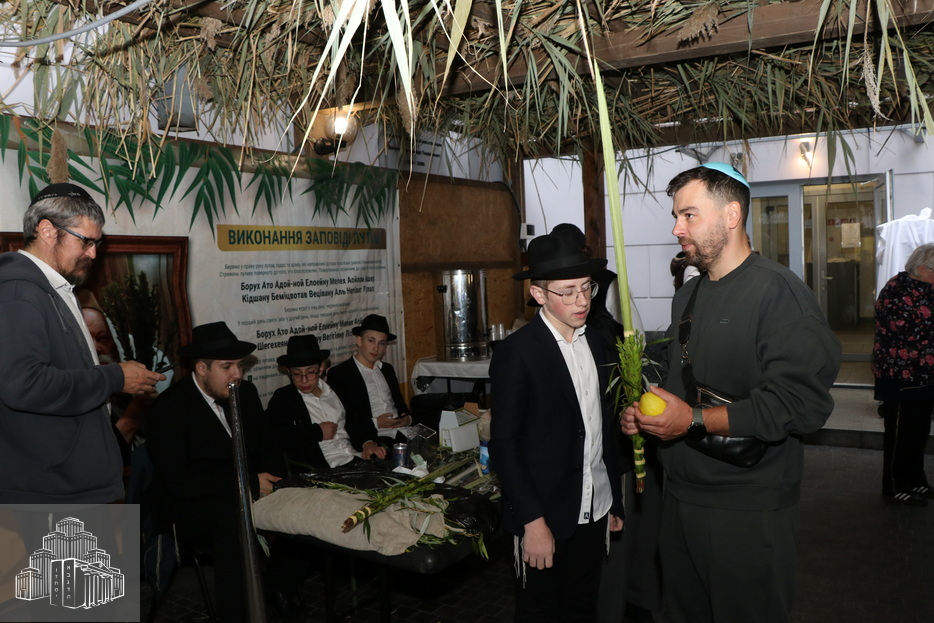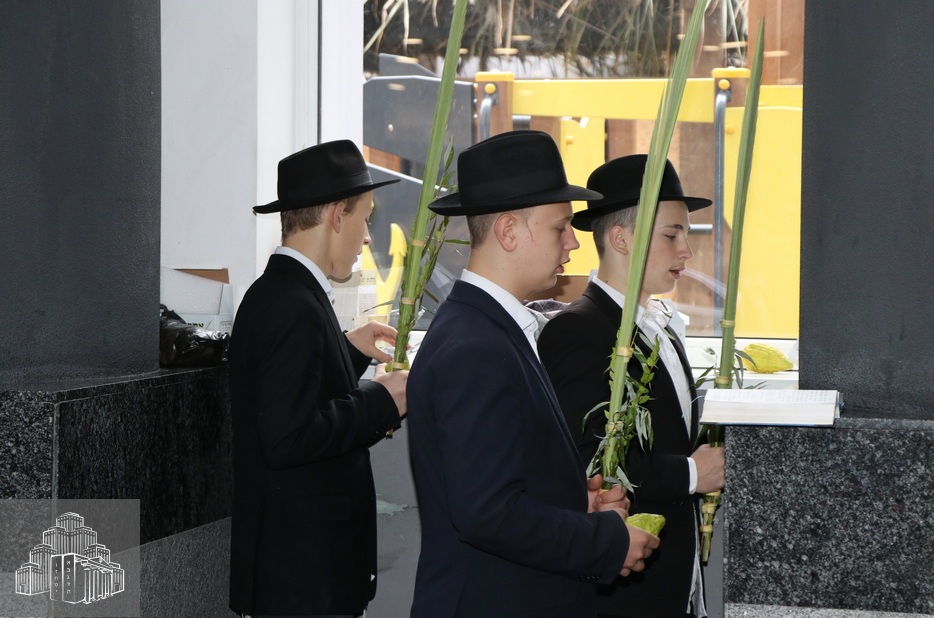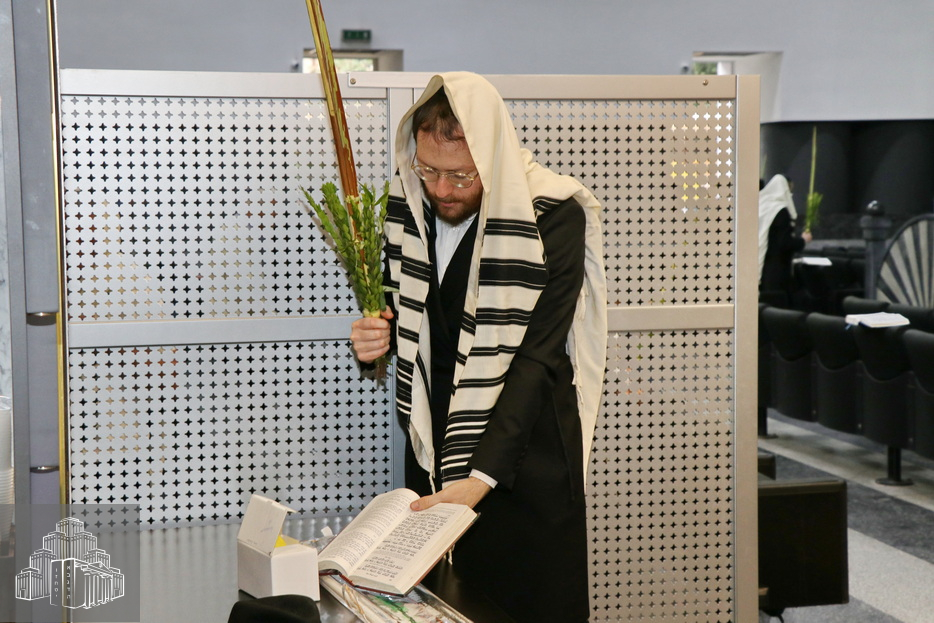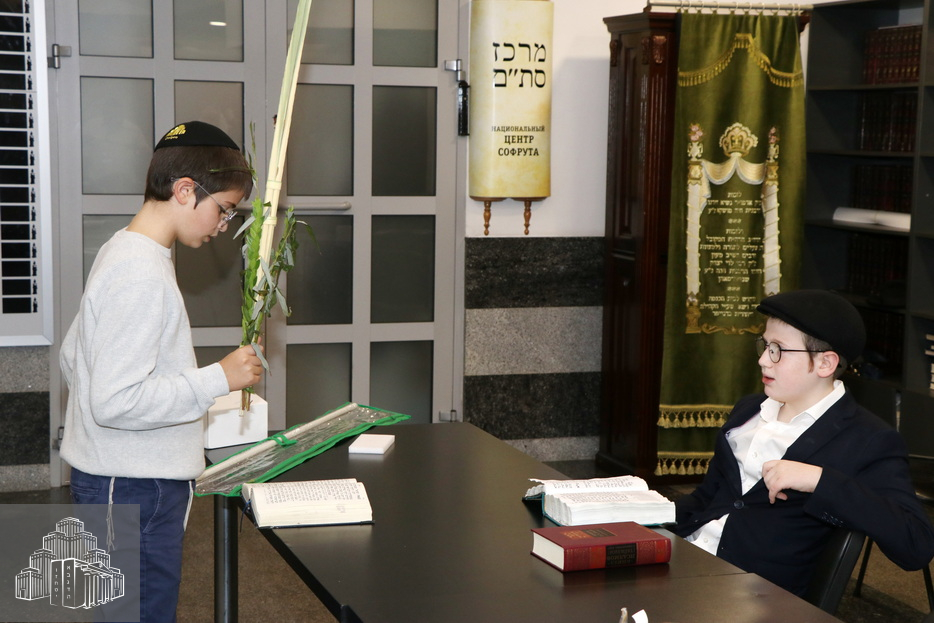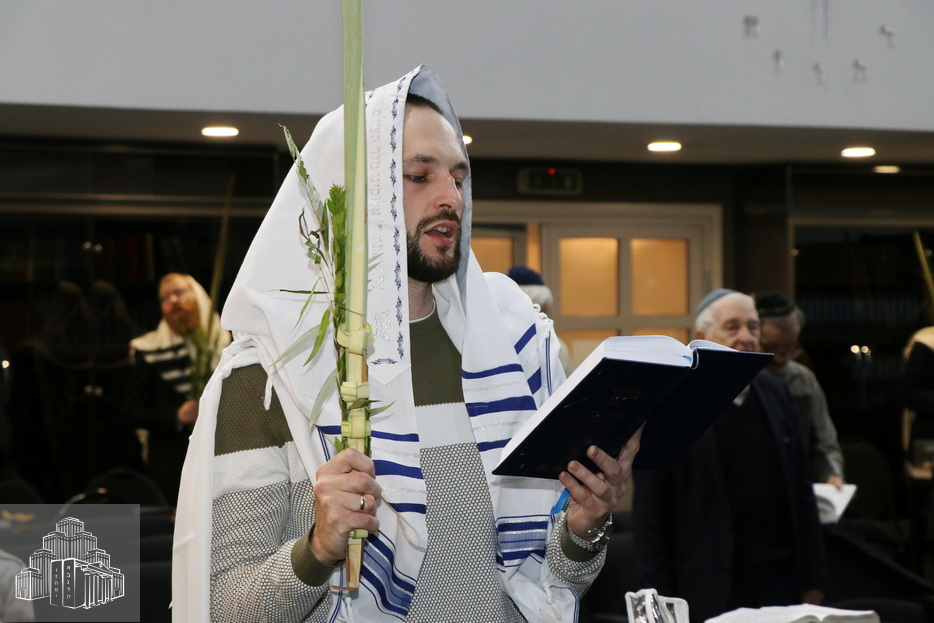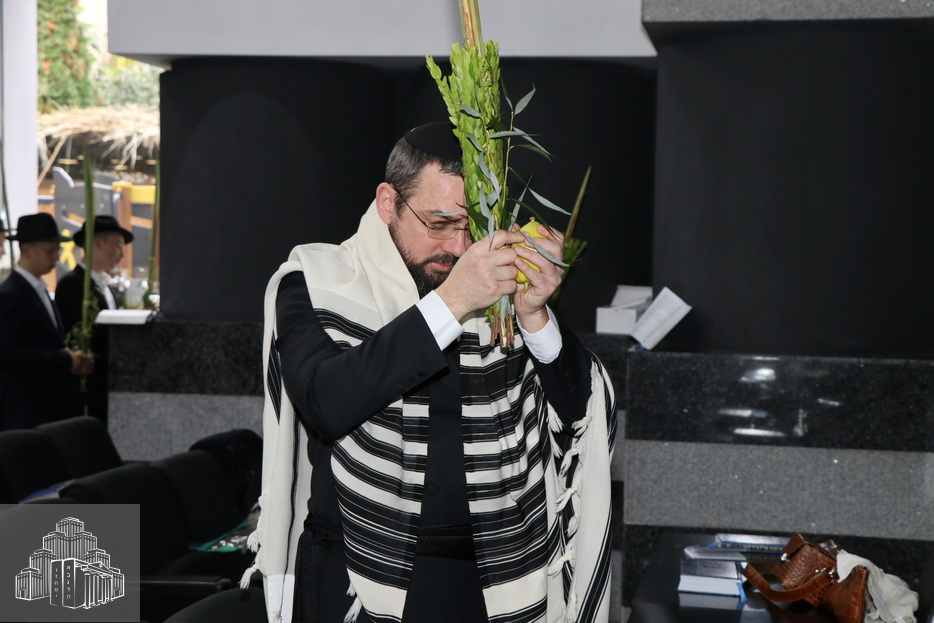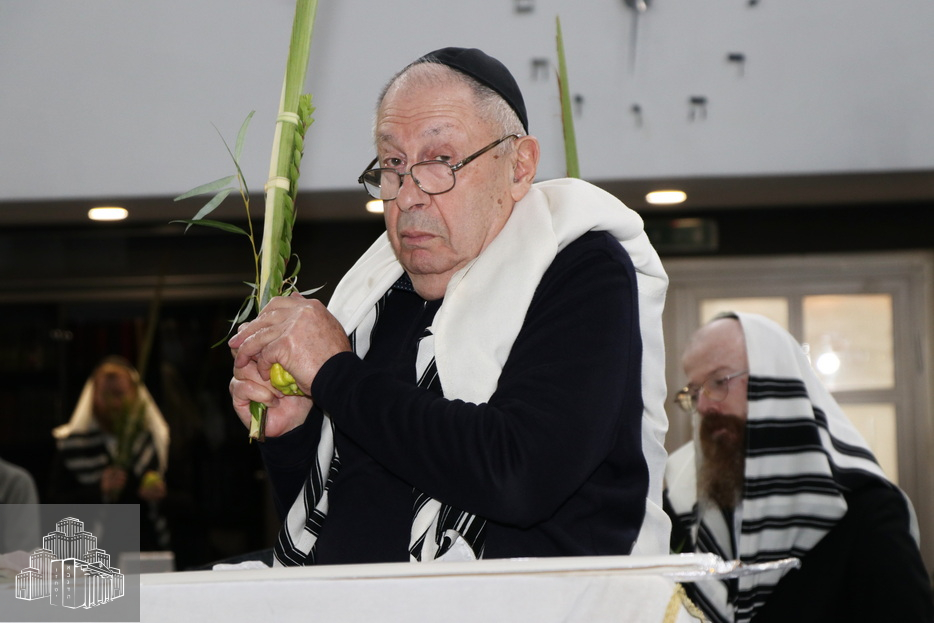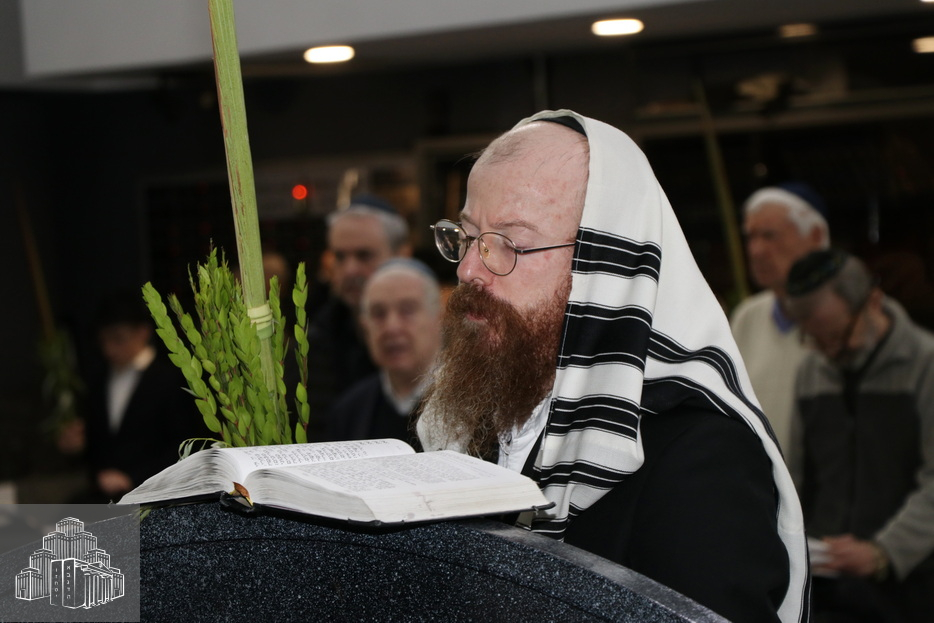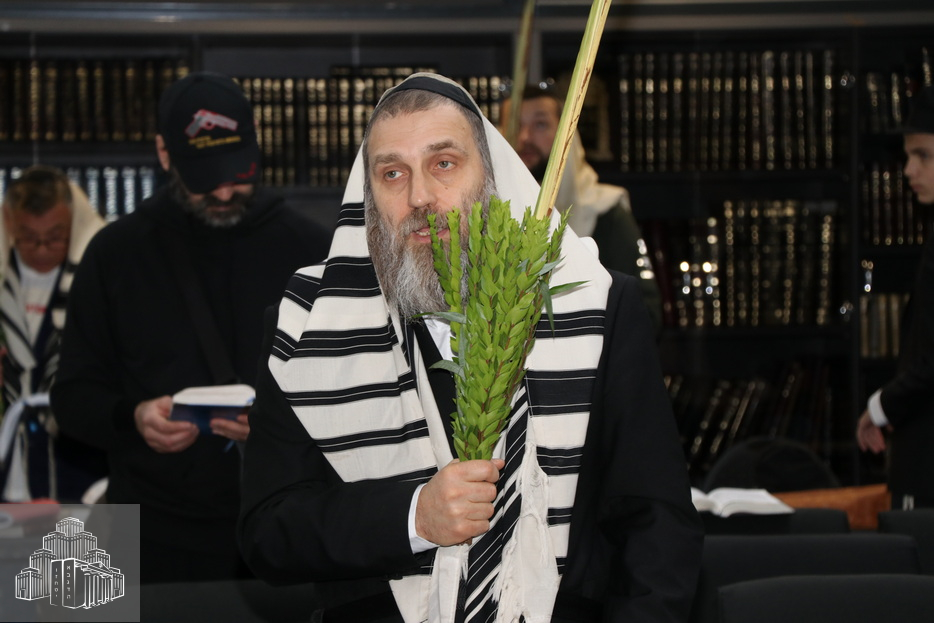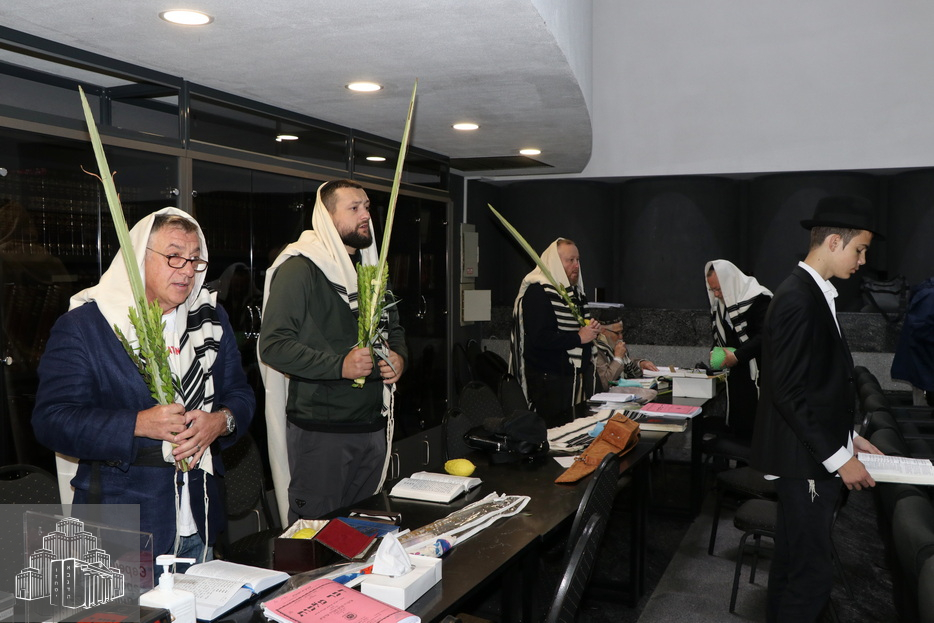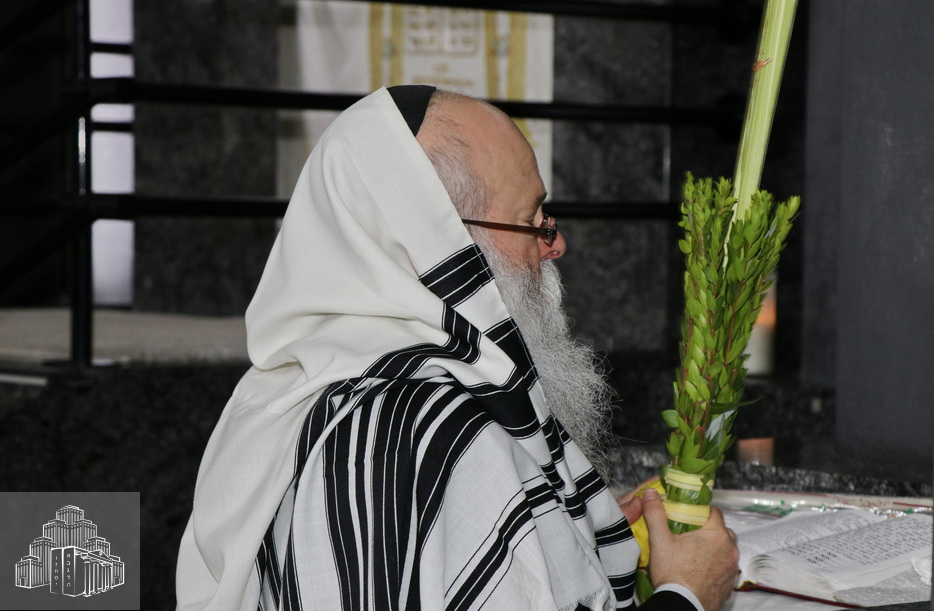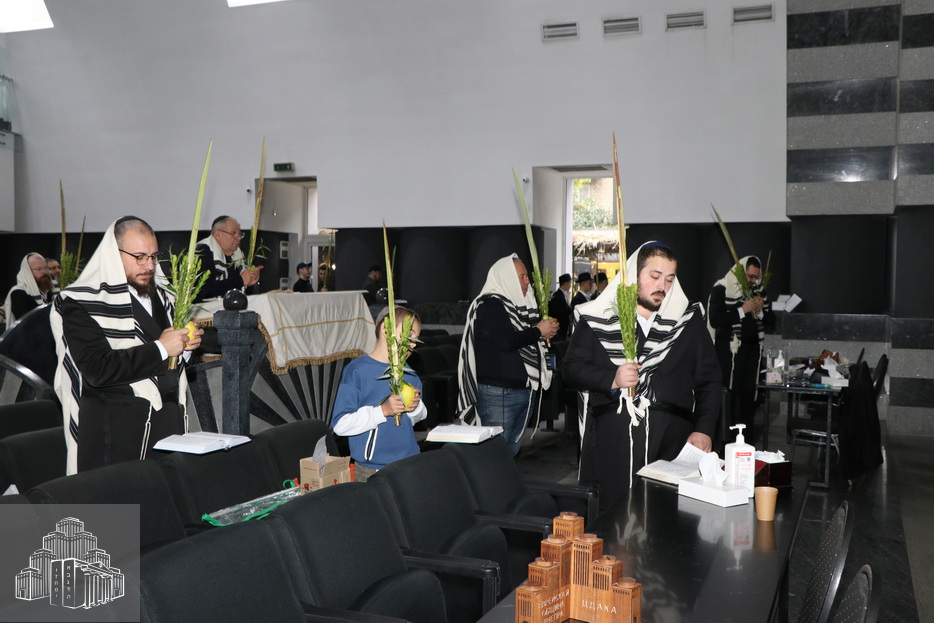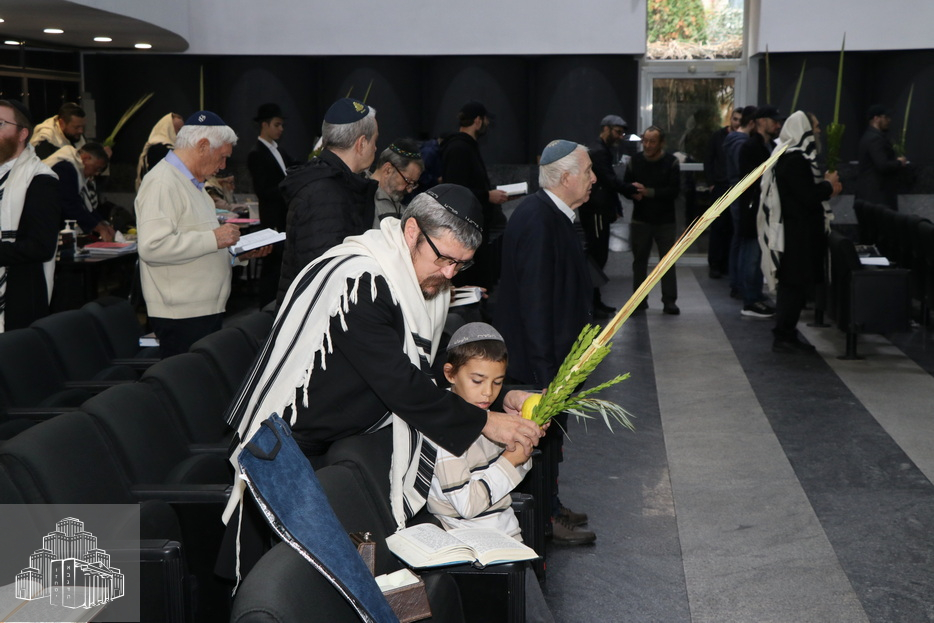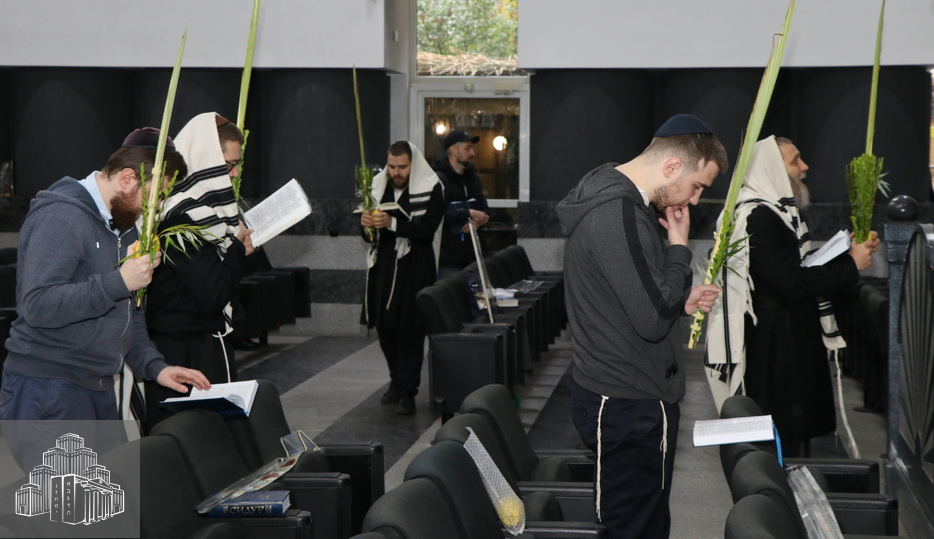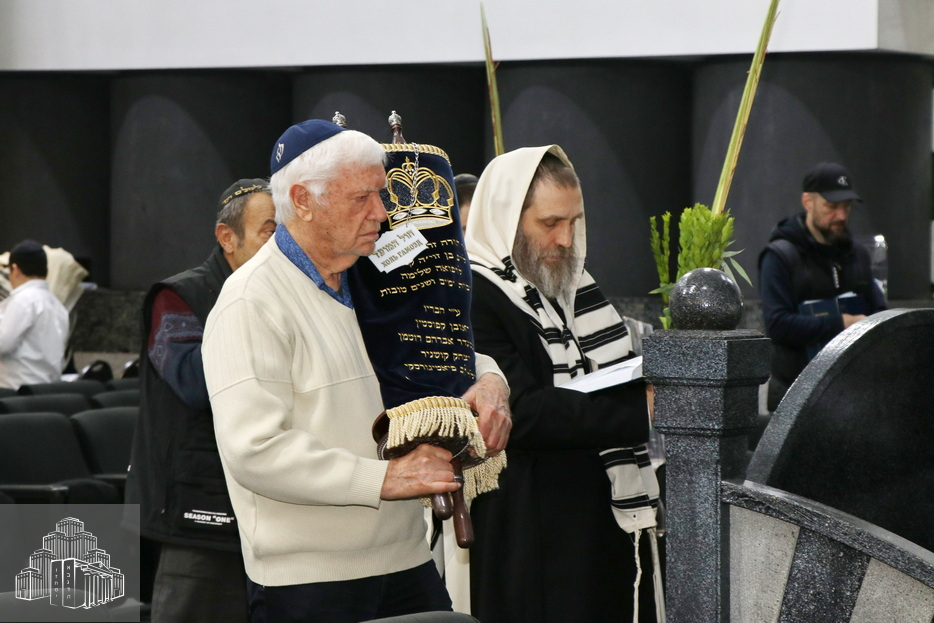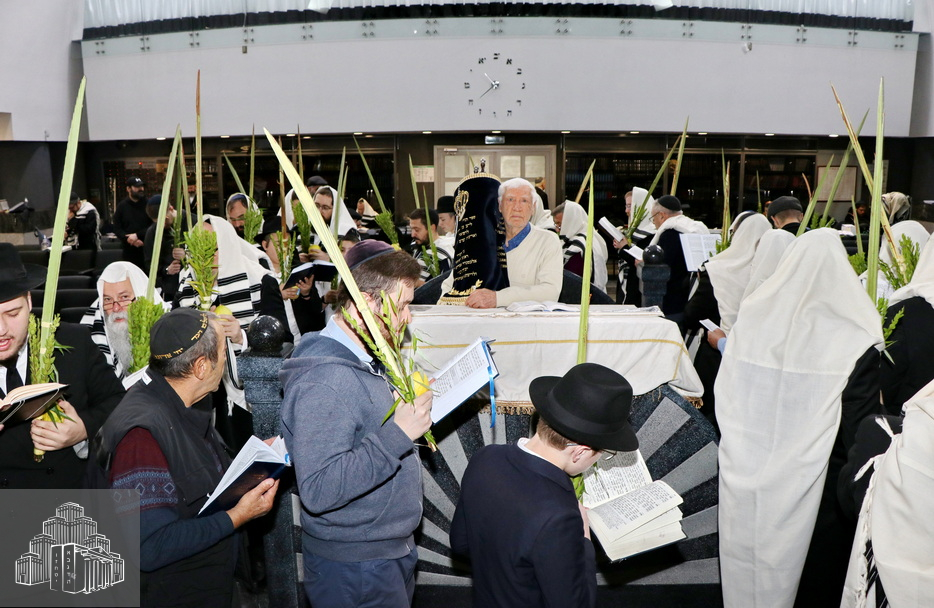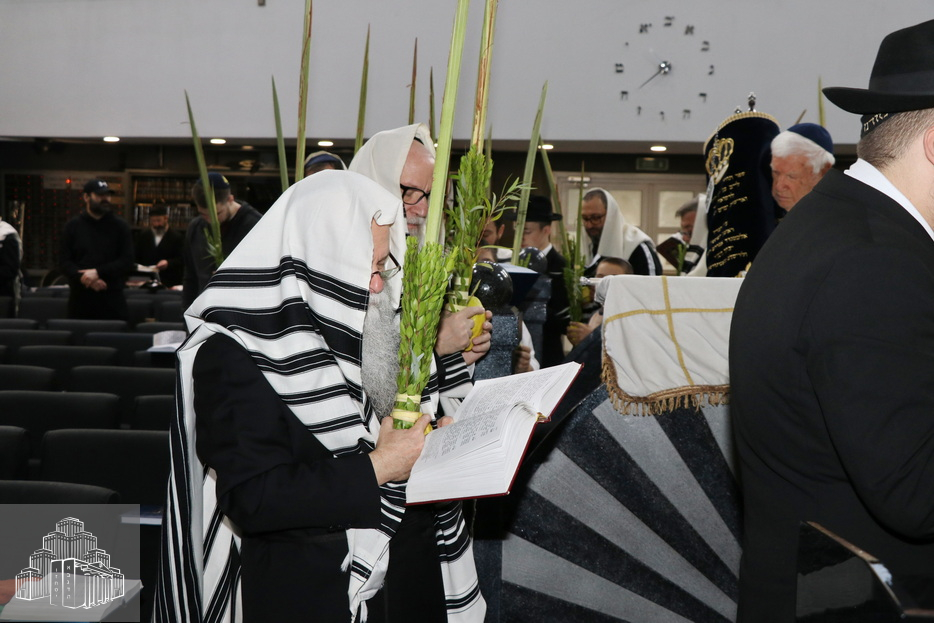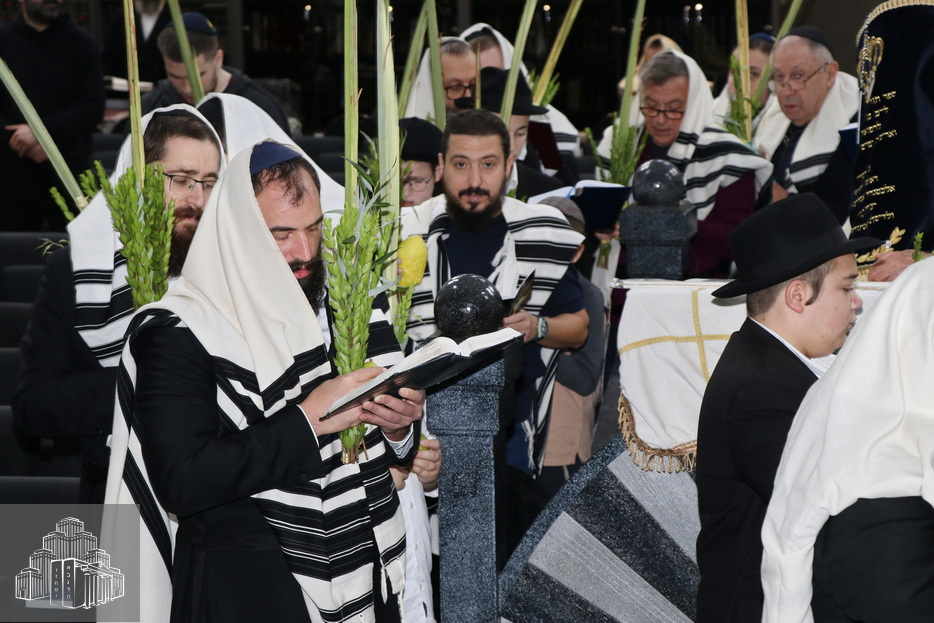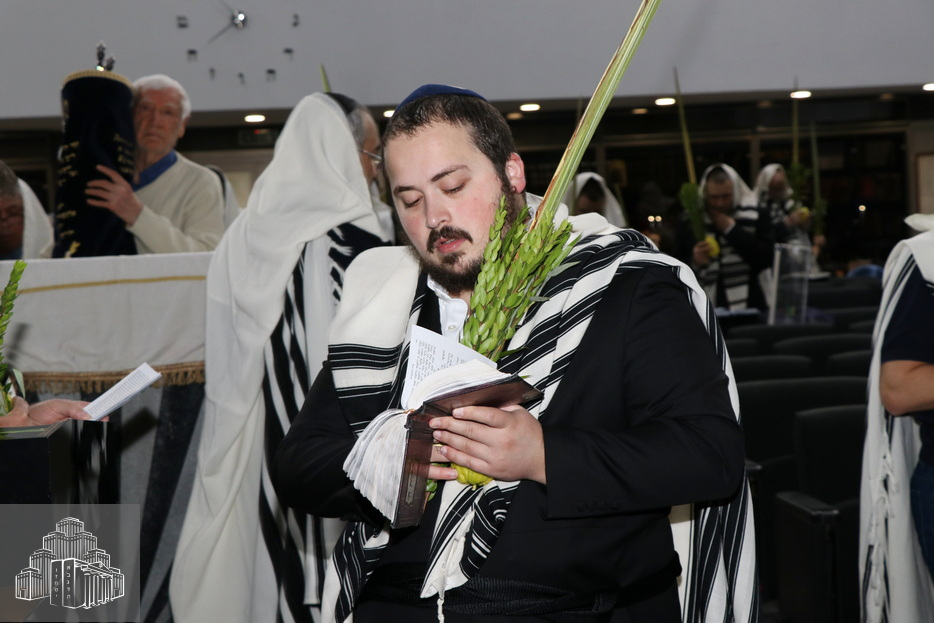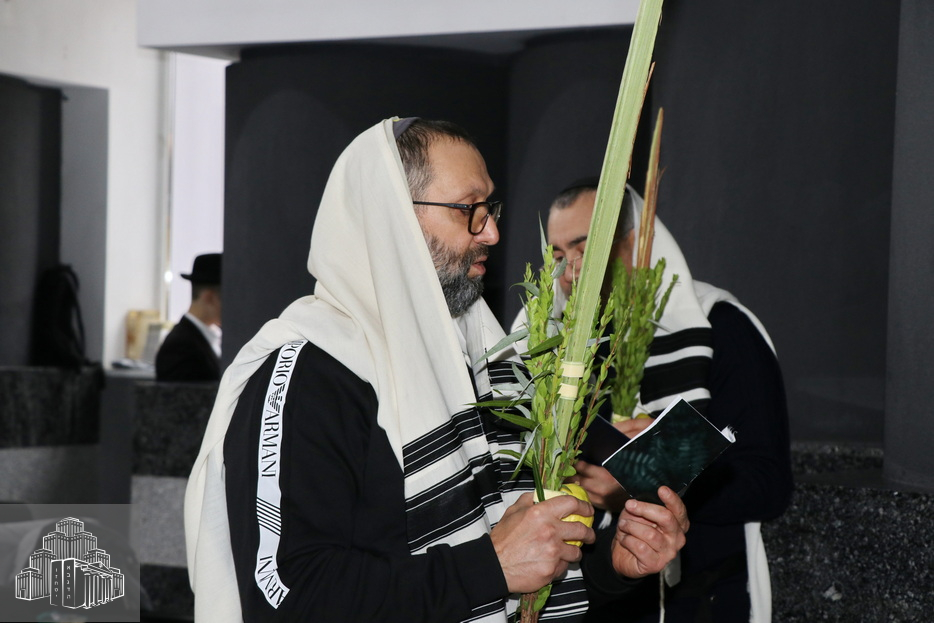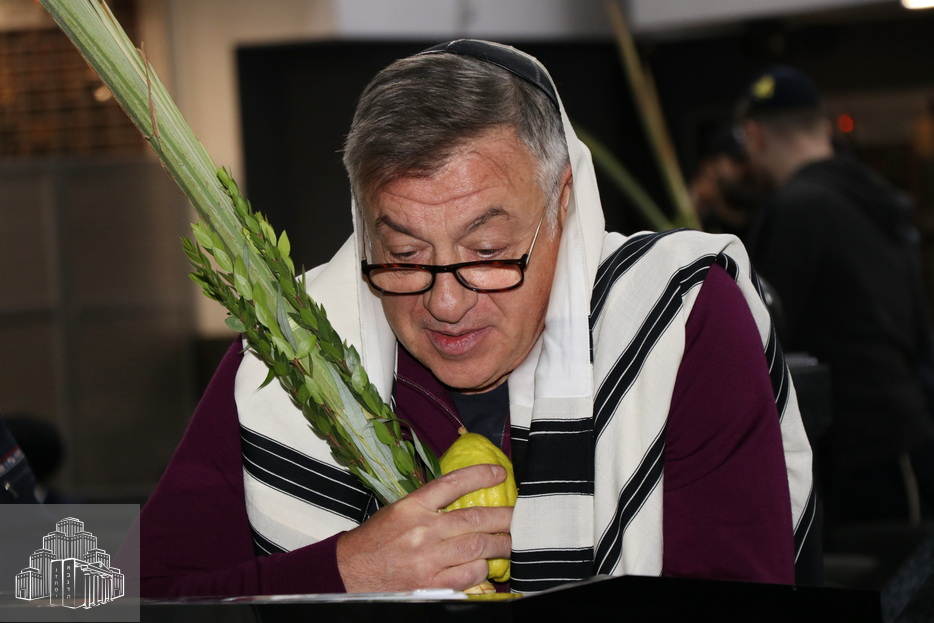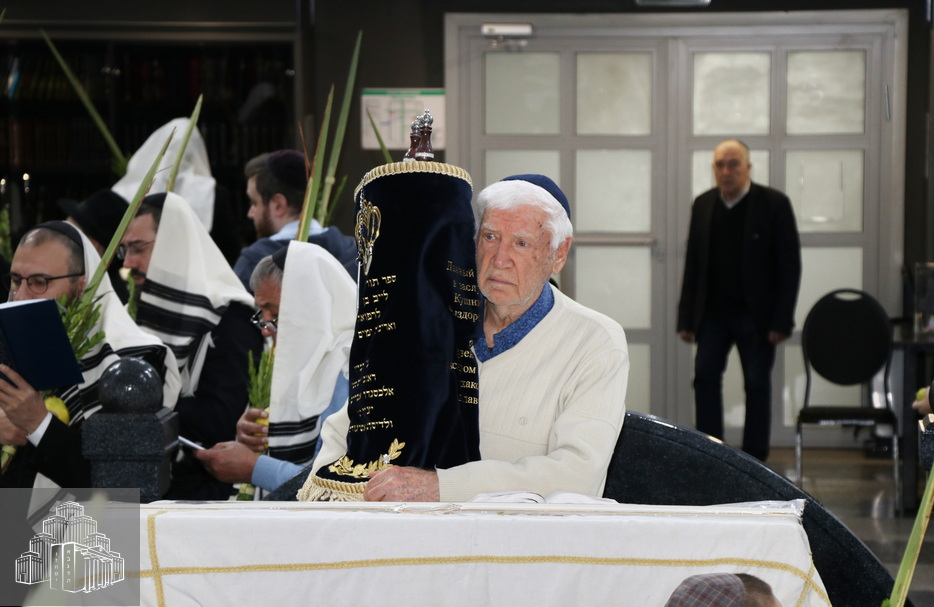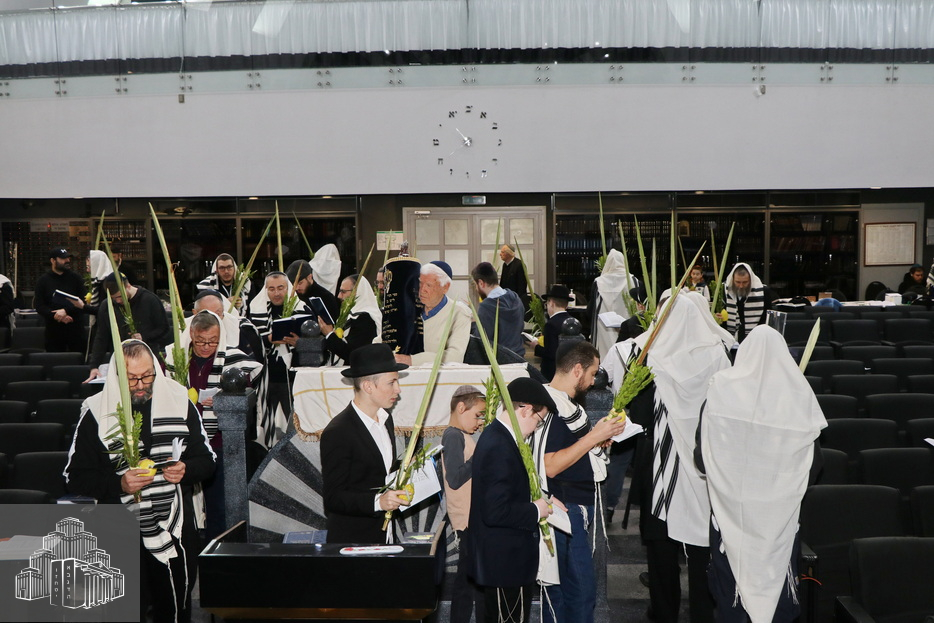At the “Golden Rose” Central Synagogue, as throughout the entire Jewish Community of Dnipro, the festival of Sukkot has been a time of profound spiritual joy, prayer, and unity. During these days, the synagogue’s inner courtyard has been transformed – a spacious sukkah has been erected here, where community members gather to fulfill the holiday commandments, share festive meals, and engage in inspiring Chassidic discussions.
The highlights of the holiday include the reading of the Torah Scroll, the special prayers of Sukkot, and the sound of Chassidic nigunim that fill hearts with a sense of joy and closeness to the Almighty. Hundreds of community members have acquired sets for performing the mitzvah of “Netilat Lulav” – the waving of the Four Species, which symbolize the unity of the entire Jewish people. Throughout the festive days, a mitzvah station operates in the sukkah, where students of the Dnipro Yeshiva named after Rabbi Levi Yitzchak Schneerson and young emissaries of the Rebbe help every Jew perform the commandment in accordance with all the laws.
As stated in the Torah: “And you shall take for yourselves on the first day the fruit of the citron tree, the branches of date palms, twigs of the myrtle tree, and willows of the brook, and you shall rejoice before the Lord your God for seven days” (Vayikra 23:40).
The Midrash (Vayikra Rabbah 30:12) reveals the profound symbolism of these plants, comparing them to different types of Jews who, despite their differences, are united as one:
The etrog, which has both taste and fragrance, symbolizes Jews who possess both Torah knowledge and good deeds
The lulav (date palm branch), whose fruit has taste but no fragrance, represents those who have Torah knowledge but lack good deeds
The hadas (myrtle), which has fragrance but no taste, symbolizes those who perform good deeds but lack Torah learning
The arava (willow), which has neither taste nor fragrance, represents those who lack both.
All four species are bound together in one mitzvah, teaching us that true service to the Almighty requires the inclusion of all Jews.
Today, the celebration of Sukkot at the “Golden Rose” is not only about fulfilling commandments but also a testament to the strength of spirit, unity, and love that unites the Jewish community of Dnipro. Thanks to the inspiring leadership of the Chief Rabbi of Dnipro Shmuel Kaminezki, the community lives in an atmosphere of mutual respect, support, and spiritual growth.
